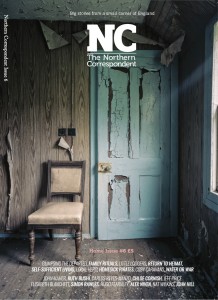Changes announced today are vital for our north east prisons and prisoners, says former governor Alex Ross
“I believe that sending people to prison is necessary, the right thing to do. I don’t agree with those who say we send too many people to prison… Yes, prison works.”
These were the words of the then justice secretary, Chris Grayling, in a speech to the Prison Reform Trust in January 2015. Just over a year later, with Grayling long gone, David Cameron has made the first major speech on prisons by a prime minister since John Major in the 90s, and admitted “the failure of our system today is scandalous.”
Grayling departed post taking with him some of the most unpopular policies in recent history; his successor, Michael Gove has already ditched the infamous “book ban” along with plans for a £100m secure college for young offenders branded a “modern day borstal” by critics. With rates of violence, self-harm and suicide at an all-time high, and a Ministry of Justice budget reduced by 25% since 2010, it seems for Cameron that enough is enough, change is needed.
About time.

Photograph by Peter Byrne, from Issue #5
Some £1.3bn has been committed to building nine new prisons and to closing some of the oldest and worst. This is a welcome development – as long as we do not follow the United States down the terrible path of “warehousing”, vast prisons with little for prisoners to do. Look no further than HMP Northumberland, formerly two public sector prisons, now one rather clumsily conjoined privately run site housing over 1,300 prisoners, beset by claims of mass inactivity – prison inspectors found a third of prisoners locked up during the day and said “the prison lacked a clear sense of purpose.” A close-to-home reminder that bigger is not always better.
Some changes announced today are vital and long-overdue. Prison governors have always needed greater autonomy; it’s simply impossible for a governor to positively affect the rate of reoffending, level of education and employment prospects of prisoners in their care if they do not have control of how their own budgets are spent and today’s proposals recognise this.
As a governor working in prisons across the north east over ten years, I was constantly astonished at the myriad meaningless targets and the contrasting absence of responsibility we had for how our money was spent and what it achieved. When the prime minister said that is was wrong that someone in Whitehall decides how many hours a prisoner should be out of his cell or how many pairs of underpants they can have, it raised a laugh in the audience. But forgive me for failing to laugh at the wasted hours locked up, or the daily indignities that prisoners I know personally have faced, when better options should have been and were available.
Remove dignity, and little is left in humanity. So if you scoff at the notion that in prison access to books, clean underpants and something to do in the daytime are often matters of life or death, think again. More than one person a week takes their own life in prison and the rate is the highest for seven years. The prime minister was right to say this “should shame us all”.
Alex Ross is a criminal justice consultant and former prison governor. You can follow him on Twitter.
Tell us your views in the comments section below – by clicking on the little speech bubble.
(Views expressed on our website and in our magazines and emails are not necessarily endorsed by The Northern Correspondent.)
Subscribe to our weekly email:
Buy our latest magazine:

